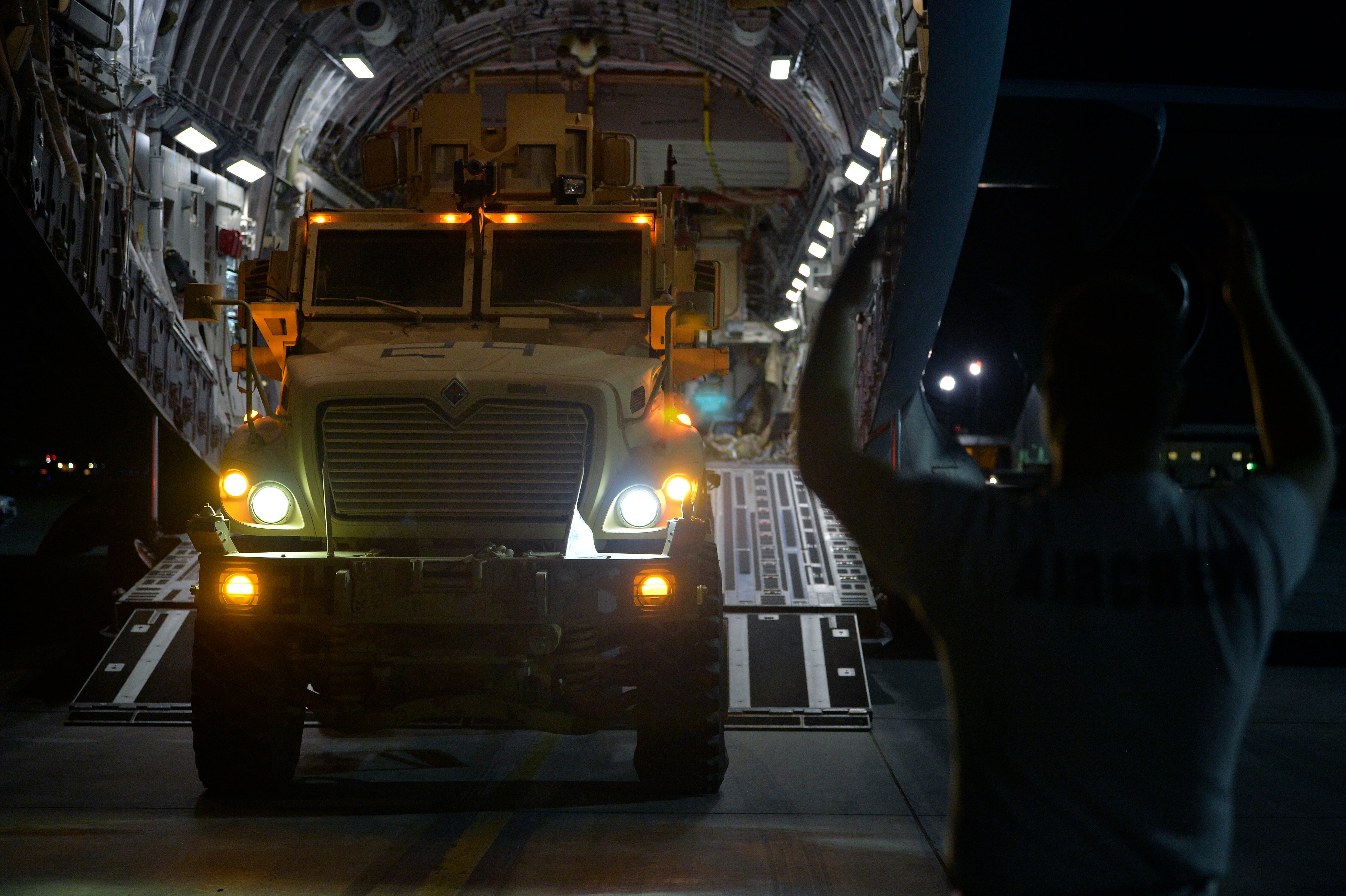UPDATE — This story has been updated to include a statement from the president of Navistar Defense.
WASHINGTON — The U.S. Court of Federal Claims has ruled in favor of the U.S. Army’s decision to go with only one source for its Family of Medium Tactical Vehicles for more than 10 years, denying Navistar’s lawsuit brought against the service and FMTV-maker Oshkosh Defense for not competitively procuring the vehicle.
Following the Army’s initial five-year contract to buy FMTVs from Oshkosh, the service chose a sole-source procurement route with the company, arguing it didn’t have time to reopen competition because of urgent needs.
Since 2009, the Army has spent more than $6 billion on FMTVs from Oshkosh. FMTVs are used for a wide variety of missions, including transporting for different cargo and missile defense radars.
Navistar filed its lawsuit with the court in early August 2019. A bench trial was held Nov. 26, and a sealed decision was rendered Dec. 13. The court’s decision was unsealed this month.
Navistar had filed a protest over the FMTV decision with the Government Accountability Office. But Navistar decided to sue the Army after the company said it was getting nowhere in its quest to get the Army to produce documents that would show the service’s reasoning to continue to order more vehicles from Oshkosh without competition and without proper legal justification.
The company contended that the Army did not justify and had improperly awarded its most recent sole-source FMTV procurement in 2019 to Oshkosh, and that the service failed to provide proper notice to possible competitors in accordance with federal acquisition regulations and the Competition in Contracting Act, according to an extensive review of court documents by Defense News.
In addition, the Army also ignored a stop-work order, which automatically went into effect when the GAO protest was filed.
Navistar filed two complaints: One that claims the Army violated the law when it continued to buy Oshkosh vehicles outside of the scope of its contract without holding a competition, and another that claims the Army illegally continued to work on production of those vehicles despite a required stop-work order that must go into effect once a protest is filed with the GAO.
Navistar contended the Army had ample time to compete for follow-on FMTV orders, and that the pool was deep with companies ready to provide vehicles that met the service’s requirements, but the Army never did.
The Army instead issued a series of justification and approvals, or J&A, to extend its original contract award, including a September 2016 J&A, which Navistar protested with the GAO. Navistar settled with the Army, which included a deal to build vehicles for Iraq.
To justify its orders in 2019, the Army amended the September 2016 J&A rather than issuing an entirely new one. Navistar claimed the move was not only against the Army’s previous practice but also against the rules of contract law.
RELATED

The court disagreed with Navistar’s argument that the Army’s 2019 sole-source contracting action constituted a “cardinal change” to the original contract or its subsequent 2016 J&A, which extended the contract.
The judge decided the Army’s 2019 decision to procure an additional 1,916 vehicles did not “materially depart” from the scope of the original contract, which is one of the characteristics of a cardinal change.
Additionally, the judge did not find any evidence that the 2019 orders fell out of the scope of the contract as modified by the Army in the 2016 J&A.
The orders also fell within the terms of the contract, the judge found, which ended Aug. 25, 2019. The orders were placed between February and June of that year.
The court also argued that Navistar and potential other offerors that might have participated in an FMTV competition were “adequately” notified of the possibility that the Army would procure additional tactical vehicles during the term of the contract.
The judge found the 2016 J&A made clear the Army’s plan to extend and increase the value of the contract for the purpose of adding additional vehicles and made clear its reasoning not to hold a competition. The court argued that Navistar and others should have expected the possibility the Army would decide to increase the number of vehicles it might procure.
The court also noted that the Army issued an explanation again in June 2019 outlining its need to buy more vehicles to bridge a gap between the current version of the FMTV and a new variant, for which Navistar did not compete.
The judge wrote that additional vehicles were justified “because it’s well-established the Army’s estimate of its requirements is not a guarantee or warranty of the exact quantity required.”
RELATED

Navistar failed to show that the 2016 J&A limited the number of vehicles the Army could procure, according to the decision.
The court also noted Navistar failed to show any statute or regulation that required the Army to issue a J&A every time it needed to add more vehicles beyond original estimates. The judge argued that even though it was the Army’s practice to do so when it ordered more vehicles, the absence of a complete J&A in 2019 was not against the rules.
The court also found the Army had proper approval from a senior procurement official to extend its contract beyond the 10-year limit in accordance with the law. Navistar had argued the Army improperly extended the term of the contract.
Additionally, the court argued that Navistar’s settlement agreement in 2016 — following the company’s GAO protest — precludes the vehicle maker from raising certain claims related to the FMTV contract because it waived its rights to appeal or protest any further orders under the contract.
“The court agrees with the government that Navistar may not pursue claims related to the decision to extend the contract in 2016 or a challenge of the terms of the FMTV contract as they related to foreign military sales,” the decision stated.
The judge also decided that since Navistar voluntarily withdrew its GAO protest and wasn’t successful in demonstrating the merits of its claims before the court, injunctive relief could not be provided.
“When issues arise that warrant review before independent government agencies and the court, we have and will continue to bring them forward for review on the merits, especially those issues that directly impact U.S. taxpayers, our company and our dedicated employees who support critical U.S. missions around the world,” Kevin Thomas, Navistar Defense’s president, said in a statement to Defense News.
Jen Judson is an award-winning journalist covering land warfare for Defense News. She has also worked for Politico and Inside Defense. She holds a Master of Science degree in journalism from Boston University and a Bachelor of Arts degree from Kenyon College.








